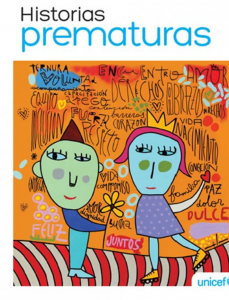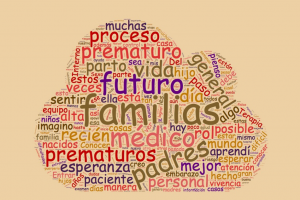Pamela Jofre, Pediatrician and Professor at the University of Valparaiso – Chile
In order to stimulate reflection among future doctors enrolled at the University of Valparaiso in Chile, a course in Narrative Medicine was introduced from 2017 as part of the internship in Paediatrics, and addressed to students of the last year of the same university.
As this is a subject and a new discipline in Chile in the healthcare, social and cultural fields, I wanted to start by trying to analyze their understanding and knowledge of students. In addition to the participation to the course, I also let them read the fairy tale “Neither Einstein, nor Ana Pavlova, nor Derek Palavicini“, taken from the book of short stories “Premature Stories“, in which Argentine artists have represented 2000 stories of families of premature babies and their experience. Subsequently, through a semi-structured interview, 19 students aged 23-27 participated in an online survey in which they were invited to tell about their experience of internship in the Neonatal Intensive Care, in contact with premature babies and their families.

In the answers collected, we could observe a language full of different feelings and meanings, rich in metaphors and poetry. Metaphors, in particular, have been the tool through which trainees have been able to express their hopes, expectations, sense of fragility and inadequacy experienced in some situations. Or even express what they saw around them, such as in this description of the Neonatal Intensive Care Unit:
“a work of art, in which each brushstroke is different, and no matter the shape or size, because they seem to be moulded in the framework of life”.
Communication with families was another important topic of investigation, that students narrated in an intense way, especially concerning the complexity of managing the communication of uncertainties:
“It is like wanting to speak for the first time in another language. I don’t know German, but once I tried to speak English with a German boy. We both wanted to communicate, we needed to do it for the team, and in the end we managed to do something.”
Their stories have given many positive ideas on different themes, such as reflection on the role of the trainee, sometimes perceiving themselves as a passive spectator, sometimes as a witness, or as a future doctor who has the task of treasuring the experience and reflect on himself. One of them wrote:
“Being a medical trainee in this department is like being and not being, like Schoredinger’s cat, who is alive and dead at the same time”.

Or the reflection on the role of the doctor in educating the mother to breastfeed, the work done in a team and with passion in the neonatology units of public hospitals, and the good working climate perceived, which has allowed him to acquire the necessary training.
And yet, very intense are the metaphors addressed to inpatients children’s parents, who face “a film of terror with happy ending”, as to “advance a grain of sand a day to cover a whole beach”.
As a Paediatrician and Professor at the University of Valparaiso, having taken part in the Master’s degree in Narrative Medicine at the ISTUD Foundation in Milan has giving me many benefits, and having done the project work at the same time has allowed me to enter the world of my students, their experiences and difficulties. The knowledge I learned during the course and the training I followed in Italy allowed me to structure, deepen and compare my knowledge with that of other training and health contexts.
Contacts: Pamela.jofre@uv.cl
We thank Paola Chesi for her collaboration on this contribution.
